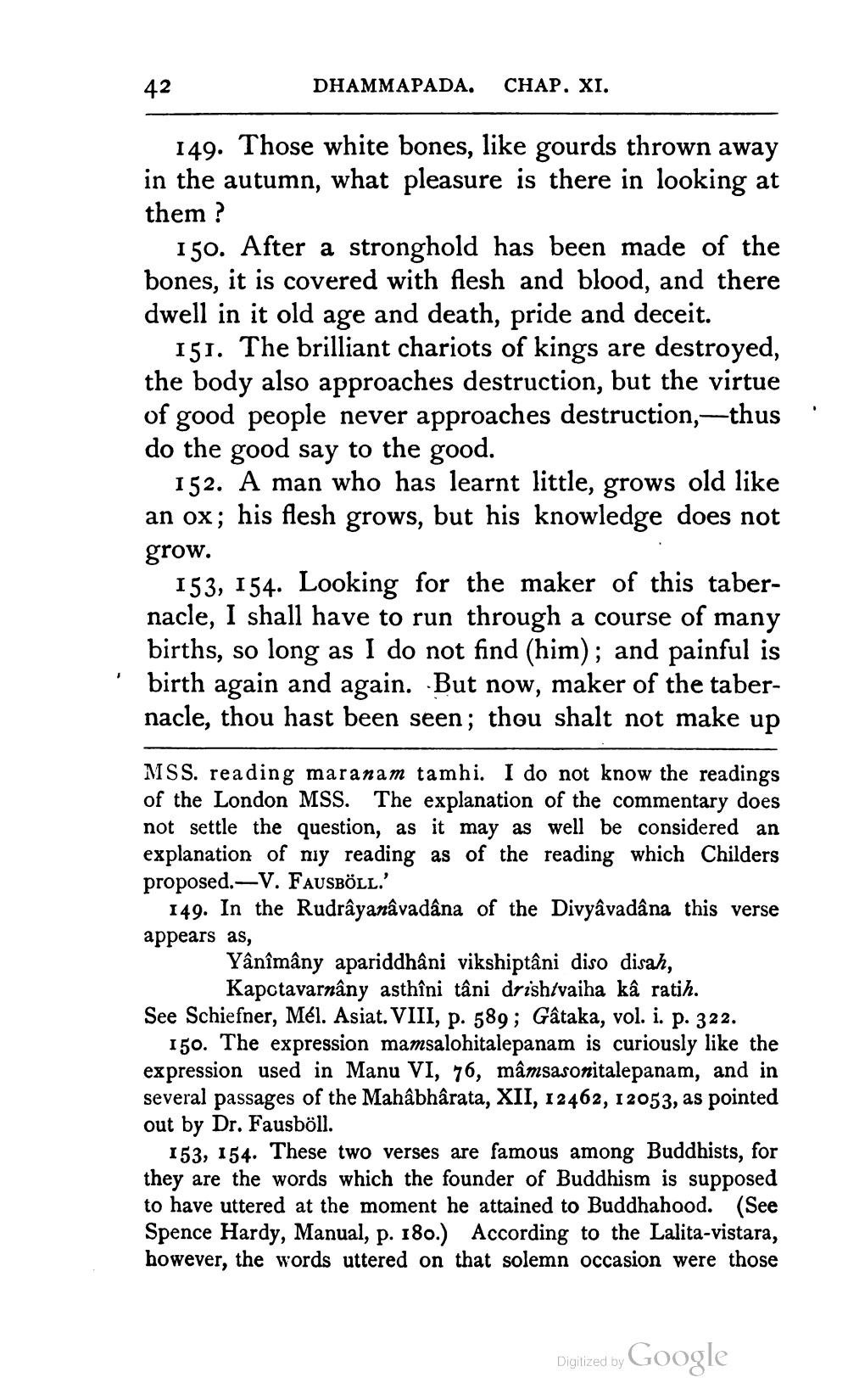________________
42
DHAMMAPADA. CHAP. XI.
149. Those white bones, like gourds thrown away in the autumn, what pleasure is there in looking at them?
150. After a stronghold has been made of the bones, it is covered with flesh and blood, and there dwell in it old age and death, pride and deceit.
151. The brilliant chariots of kings are destroyed, the body also approaches destruction, but the virtue of good people never approaches destruction,—thus do the good say to the good.
152. A man who has learnt little, grows old like an ox; his flesh grows, but his knowledge does not grow.
153, 154. Looking for the maker of this tabernacle, I shall have to run through a course of many births, so long as I do not find (him); and painful is birth again and again. But now, maker of the tabernacle, thou hast been seen; thou shalt not make up
MSS. reading maranam tamhi. I do not know the readings of the London MSS. The explanation of the commentary does not settle the question, as it may as well be considered an explanation of niy reading as of the reading which Childers proposed.—V. FAUSBÖLL.
149. In the Rudrayanâvadâna of the Divyâvadâna this verse appears as,
Yânîmâny apariddhâni vikshiptâni diso disah,
Kapctavarnâny asthîni tâni drishtvaiha kâ ratih. See Schiefner, Mél. Asiat. VIII, p. 589; Gâtaka, vol. i. p. 322.
150. The expression mamsalohitalepanam is curiously like the expression used in Manu VI, 76, mâmsasonitalepanam, and in several passages of the Mahâbhârata, XII, 12462, 12053, as pointed out by Dr. Fausböll.
153, 154. These two verses are famous among Buddhists, for they are the words which the founder of Buddhism is supposed to have uttered at the moment he attained to Buddhahood. (See Spence Hardy, Manual, p. 180.) According to the Lalita-vistara, however, the words uttered on that solemn occasion were those
Digitized by Google




